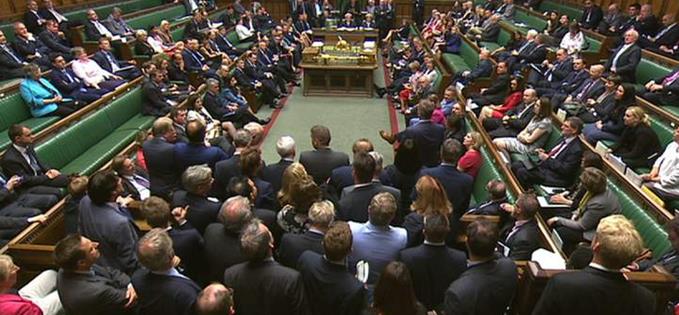PEOPLE in Liverpool will be among the worst affected by controversial Tory welfare reforms. But when the big Commons vote came last night to bring in a raft of cuts totalling £12 billion not one of the city’s MPs said no.
It was left to Bootle’s new MP, Peter Dowd, Margaret Greenwood, the Labour hero who unseated Esther McVey in Wirral West, and St Helens’ new MP Marie Rimmer as the only local Labour MPs to rebel against party orders to abstain the vote.
The only other local MP to say no to the proposed Welfare Reform Bill was Southport Lib Dem John Pugh.
The 48 Labour MPs who rebelled also included Liverpool born John McDonnell, former Manchester City Council leader Graham Stringer, Warrington North’s Helen Jones and Labour celebs such as Diane Abbott and Dennis Skinner.
But in the end the Commons backed the Bill by 308 to 124 votes.
Nevertheless, the rebellion highlights a major problem for Labour, not so much at a crossroads in its way forward, more a tangled and confused Spaghetti Junction.
At the forefront of the revolt was Jeremy Corbyn, perhaps giving his Labour Party leadership hopes a bit of a leg up, at least among trade union voters and welfare champions. Then again, perhaps not.
Labour’s caretaker leader Harriett Harman’s attempt to fudge the Bill by presenting an amendment (which was always bound to lose) will be seen by many as a "get out of jail card", an excuse for Labour members trying (but failing) to hold up their heads. Instead saying we did it our way.
It would have been better if, like a latter day Joan of Arc, she had marched into the chamber, declaring "we’ll fight this in the JobCentres, we’ll fight it in every CAB bureau and in every food bank".

During the debate, Liverpudlian left-winger John McDonnell put it this way: “I would swim through vomit to vote against the Bill, and listening to some of the nauseating speeches tonight, I think we might have to.”
At least McDonnell was prepared to sink or swim in that sea of blue bile.
The rest of his party were prepared to let down the people they are supposed to champion, and perhaps made Labour's rehabilitation that bit harder, and ever more distant.
Will the message
to the unemployed, the low earners and, perhaps, even the disabled be that Labour is prepared to sacrifice them in its quest for the holy grail, the keys to Number 10?
In its bid to seek governmental power Labour makes no secret that it is looking at ways of winning over middle Englanders to its way of thinking - whatever that way of thinking now is.
Will the message among the unemployed, the low earners and many disabled be that Labour is prepared to sacrifice them in its quest for the holy grail, the keys to Number 10?
What is the purpose of the Labour Party? Those 48 rebels seem to know the answer, at least in the eyes of the millions destined to be plunged deeper into poverty by the draconian measures George Osbourne is hellbent on.
It makes you wonder whether Lib Dem John Pugh would have a better chance of leading the Labour Party than three of the candidates who abstained, including Liverpool-born Andy Burnham.
They should all have voted no, even adding - if it made it easier - that welfare reforms are needed, but not those proposed by Iain Duncan Smith.
It was as though the party had lowered the Red Flag and instead raised the white flag of surrender. Perhaps it was for tactical reasons, but try telling that to somebody queuing in a food bank, or fearing every visit by the postman knowing it’s more likely to be a bill, a bailiff’s letter, an eviction order, rather than a nice cheque from Camelot.
Will the rebels be punished for their political misdemeanour? That would compound the felony and deepen the wounds Labour is already suffering.
Will there ever be a safe haven in the political landscape for people living a daily hand-to-mouth existence, a party to champion their cause in the way the Labour did in the post war years of the 1940s which saw the creation of the Welfare State and the NHS? The answer to Labour voters in Liverpool is clearly no.











